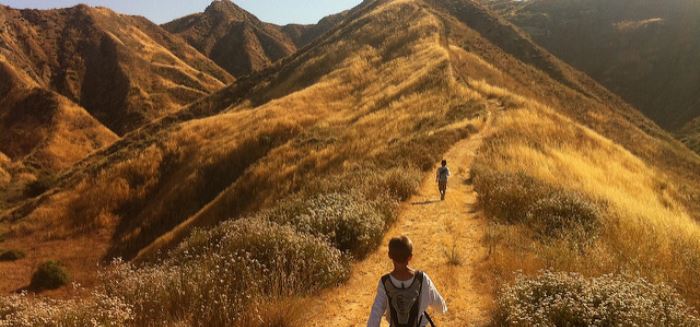For the season of Lent, we’re launching a new series, “Stewardship this Lent,” in which seminary faculty will reflect on the resonances between, well, stewardship and Lent. I’ve invited the writers to consider the Sunday readings from the Revised Common Lectionary. While some might go other directions, several of the upcoming Tuesday Lenten posts will connect stewardship to the scripture readings for the Sunday following.
Stewardship leaders—including yours truly—often advocate for a discussion of money and stewardship in congregational life outside of “stewardship season.” The saying goes, “Talk about money when you’re not asking for it.” I hope this series might help your Lenten journey resonate with your stewardship journey.
As we will find, Old Testament texts this year are filled with stories of our abundant God who brings unexpected blessings. The gospel texts, too, show God’s surprising generosity in the life of Jesus: Jesus as the living water, Jesus who heals a man born blind, and Jesus who raises Lazarus from the dead. In all, Lent’s embrace of repentance and reflection provides an opportunity to consider the ways in which we steward our money, time, gifts, and even our bodies out of reverence and love for God and neighbor.
Lenten blessings,
Adam Copeland, Center for Stewardship Leaders
Stewardship this Lent
Adam J. Copeland
The Old Testament reading for Lent I, Genesis 12:1-4a, is the story of God sending Abram on a journey. “Go from your country and your kindred and your father’s house to a land that I will show you” (v. 1). And so, Abram and Sarai go.
Cameron Howard (whose column we will feature next week) points out that the repetition of what the couple is leaving emphasizes the power of the journey. Abram and Sarai leave their country. They leave their kindred. They leave their family. And they become migrants. Their journey is long and troublesome, even though they go with God’s promise of blessing.
Stewardship, too, has to do with going, with action, with movement towards something. It’s an intellectual concept, certainly, but ultimately stewardship is about doing.
Prayer for the Journey
From time to time, I find myself praying an old Choristers’ Prayer I learned by heart many years ago when I first started in my congregation’s children’s choir. It reads, in old, poetic language:
Bless, O Lord, us Thy servants who minister in Thy temple.
Grant that what we sing with our lips we may believe in our hearts,
and what we believe in our hearts we may show forth in our lives.
Through Jesus Christ our Lord. Amen
We prayed the prayer at the end of every children’s choir rehearsal, and it stuck. I can still recite it on command today. Even these years later, the prayer’s movements still inspire: from song to heartfelt belief, and from belief to action. Faith, once it’s on our hearts, is something we must always “show forth in our lives.”
Stewardship doesn’t have too many inspiring choral anthems, but it does call for a similar sort of progression. Stewardship is no good as mere concept; stewardship calls for action, for affect.
What is “Stewardship”?
In a recent class at Luther Seminary, students and I discussed various definitions of stewardship. We began with Clarence Stoughton who says, “Stewardship is everything we do after we say, ‘I believe.’” Such a holistic approach to stewardship is helpful—and it’s action oriented—but might it be so broad as to confuse all discipleship with stewardship?
Many students were drawn to definitions that used management language—stewardship as responsible management of God-given resources of time, talent, and treasure. Charles Lane’s definition includes such an approach when he writes, stewardship concerns “that how God’s people manage what God entrusts into their care both flows from their relationship with God and impacts that relationship.”
You might not be surprised that I lean towards definitions of stewardship that privilege action. I don’t merely want to know what to think about stewardship, I want to know what stewardship looks like. I think practicing stewardship today results in sharing that surprises, compassion that complicates, and love that inspires.
Which brings us back to Lent. This season of contemplation, confession, and prayer might also be a season of compassion. I sometimes worry that Lent focuses too much on our inward dispositions, on self-reflection. That heart-work is important, of course, but this Lent, with Abram and Sarai, I’m going to keep my eyes open to times when God says, “go!” I pray, once again, that “what we believe in our hearts we may show forth in our lives.”
Check out the rest of the Stewardship this Lent series:
Water of Life by Cameron B.R. Howard
The Arc of Stewardship in the Age of Abundance and Debt by Israel Galindo
Stewardship in the Valley of Dry Bones by Benjamin Stewart
Stewardship’s Null Curriculum by Rolf Jacobson
About the Author
Adam J. Copeland is the Director of the Center for Stewardship Leaders at Luther Seminary.

